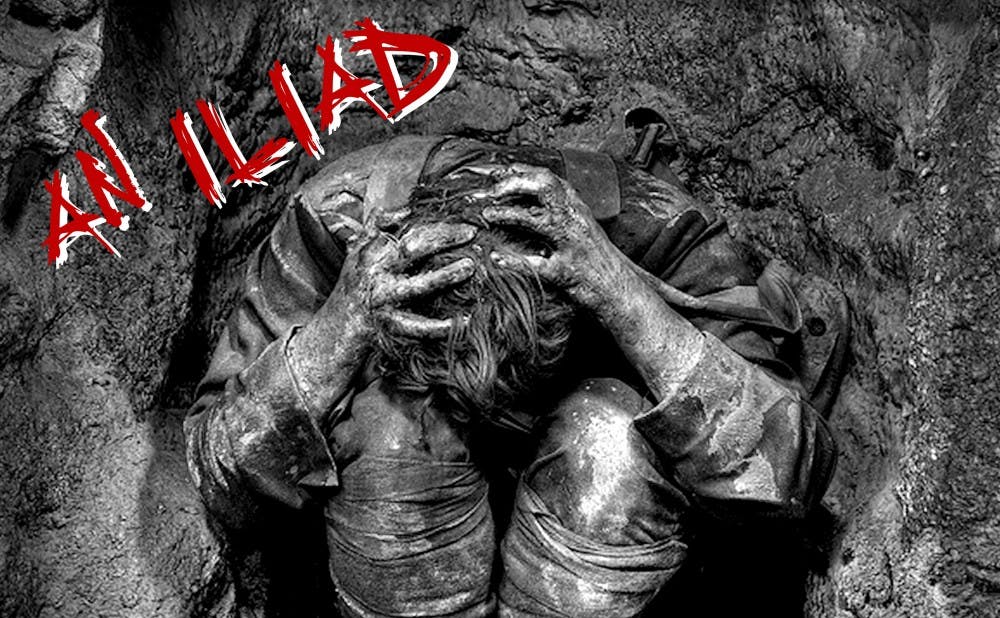Phil Watson is a Trinity senior majoring in theater studies and classical studies. For his heavy involvement in theater both at Duke and in Durham, Recess spoke with Watson about his years at Duke and his exciting final project for the spring.
The Chronicle: Tell me a little bit about your experience with art at Duke.
Phil Watson: Art at duke… That’s a lot. I started as an art history major, and I spent a fair amount of time at the Nasher. I was amazed at how much it’s got. You know, Durham, North Carolina, you don’t think of as a hub for culture, but it is. We’ve got that, and I’m a musician so I played with Hoof 'n’ Horn for a little bit, and I slowly became aware of all these different people doing all these different things. I was playing in the pit and looked up one day, during a rehearsal, and I was like, huh, I think I could do that. And here we are.
The thing about Duke is you get the kind of people where everybody is a Renaissance man or woman; you’ve got engineers who also sing and play violin and do all these different things, and they do them all really well. I just did a workshop with a playwright named Branden Jacobs-Jenkins, and he referred to theater artists as ragamuffin autodidacts, which just cracked me up. I think that’s how the arts here work, all these people who are not being forced at all. Everybody doing arts here is self-motivated, and as a result, everything they do has this crazy fire to it.
And so the idea of all these people doing all these different things—it’s very punk rock, all these underfunded hanging-on-by-a-thread people fighting tooth and nail to get something out there. Thats what I like about this. And so for my show, “The Iliad,” my distinction project, I have a table... and a bottle. And I have never seen a bottle turn into so many different things.
TC: Can you tell me a little more about “The Iliad?”
PW: It’s an honors thesis kind of thing. The show is a one-man retelling of Homer’s “Iliad,” the first and greatest war story.
TC: It’s definitely a classic.
PW: Yeah, there’s this character only referred to as the poet. He gets up to tell this story and he says, “Every time I sing this song, I hope it’s for the last time,” because in the course of an hour and 30 minutes or so, this one guy plays approximately 16 different characters, and he goes from the very height of ecstasy to the darkest, most bloodthirsty rage places.
TC: That’s a lot to cover for one person.
PW: A lot of ground gets covered in a short amount of time. It’s one of those things where this character just desperately has got to get this story out, and it’s not coming out the way he wants it to, and if he could just get it perfect, everybody would understand, and there’d be this glorious epiphany in this room. And so what the audience gets to see is his journey trying to get this story out, and the spectators see something happening in the poet. The audience is watching a struggle while the poet is telling the story of a struggle.
TC: I wanted to ask about double majoring in classics and theater studies. How did that inform you in your exploration of theater?
PW: Which came first, the chicken or the egg? These were two things that happened independently. Art history, to classics, and then theater entered my life and has not left, nor does it intend to. These two things took separate tracks for one and a half years, two years, then I started to study Greek tragedy in a more dedicated way...What I like to say when I talk about why I love classics so much is that it provides a unique and highly applicable lens through which to view the modern world. A huge amount of Western culture specifically comes from the Greeks and the Romans. I forgot where, but I read somewhere that basically, you find in Greek tragedy the most undiluted grapplings with basic human problems.
TC: There’s something really universal about the stories they tell.
PW: It’s not as if I stage many Greek productions, but the Greeks were the first theater majors, in a way. I know many who would argue with me, but they were one of the first Western theater majors. There’s something very interesting about going back to the source to figure out how you got to where you are now.
TC: And that’s kind of the entire point of storytelling, isn’t it?
PW: And [the point of] this, especially.Get The Chronicle straight to your inbox
Sign up for our weekly newsletter. Cancel at any time.

